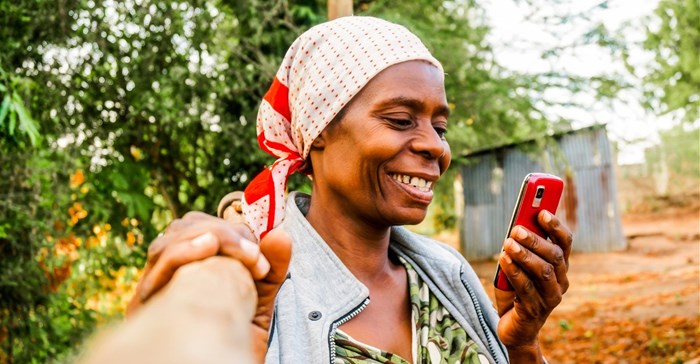
Related

Women’s voices at the G20: action urged on economic empowerment, care work, health, climate justice and forced labour
Narnia Bohler-Muller 5 Dec 2025





Top stories






More news















“Great progress has been made in increasing access to financial services in the country, with 80% of the adult population now banked – up from just 46% in 2004,” says Mark Elliott, division president, Mastercard, Southern Africa, at the launch of the Mastercard and Deloitte Africa report The future of payments in South Africa: Enabling financial inclusion and innovation in a converging world released today on the side-lines of the World Economic Forum on Africa.
However, the majority of all consumer payments are still made in cash, which indicates that people are not frequently using payment cards or digital solutions for every day payments. A key challenge is the lack of digital payment acceptance at small businesses and informal retailers, as well as deeply embedded behaviours and attitudes towards cash.
This in spite of the fact that cash is costly and carries safety risks. A Mastercard study showed that the cost of cash for consumers is R23bn per annum or 0.52% of South Africa’s gross domestic product (GDP), with the majority of this cost carried by lower income earners.
According to the report, new digital technologies have disrupted traditional business such as banking, enabling new entrants such as telecommunications and retailers to actively play and shape the payments space.
“The convergence of these industries, enabled by technology, is already giving consumers access to a wealth of financial services such as insurance and remittances in a seamless and more affordable way. While digital technologies and new distribution models hold tremendous power to speed up South Africa’s journey to a cashless society, a greater focus is needed to deliver payment experiences that add real value to both small businesses and consumers,” says Elliott.
The area where this convergence is most notable is in telecommunications and banking. The combined strengths of financial and cellular services offer the opportunity to provide payments solutions as well as increased customer utility among the large customer bases of mobile phone operators. This convergence trend is also extending into the retail sector, with retailers now moving to offer digitally-enabled financial services and social media-driven e-commerce.
A key area which is seeing substantial growth is in the use of data, where advanced analytics and artificial intelligence (AI) are being used to unlock actionable insights to deliver more personalised services to people and better serve them.
“This also has the potential to benefit small businesses and informal cash-based enterprises, as advanced AI and data insights can unlock credit given that these tools help financial services providers better evaluate risk,” says Elliott.
It is evident that industry convergence in the payments space is inevitable and will become further influenced by regulatory change, if European and United Kingdom examples of open banking are followed. But payments ecosystem players need to rethink how they both compete and collaborate.
The convergence across industry sectors requires new partnerships between companies. This presents a whole new layer of complexity to manage but also unrealised opportunities for new models to emerge," says Dr Martyn Davies, managing director: emerging markets and Africa, Deloitte Africa.
“If the converging industry players can move towards greater interoperability and partnerships, the end result must be an increase in payments offerings and better financial services, which answer customer needs with greater effect. This in turn will have the benefit of improving the customer experience and increasing adoption and usage of digital payments and services, thereby reducing cash dependency. Ultimately this will lead to increased financial inclusion and inclusive growth,” says Davies.